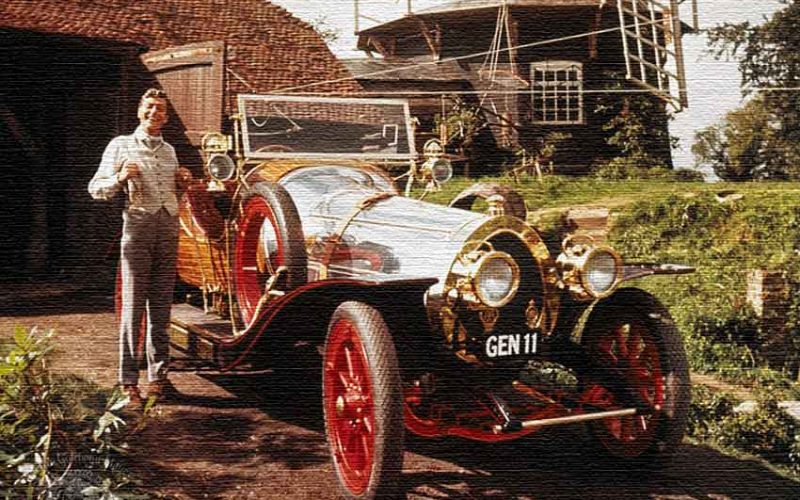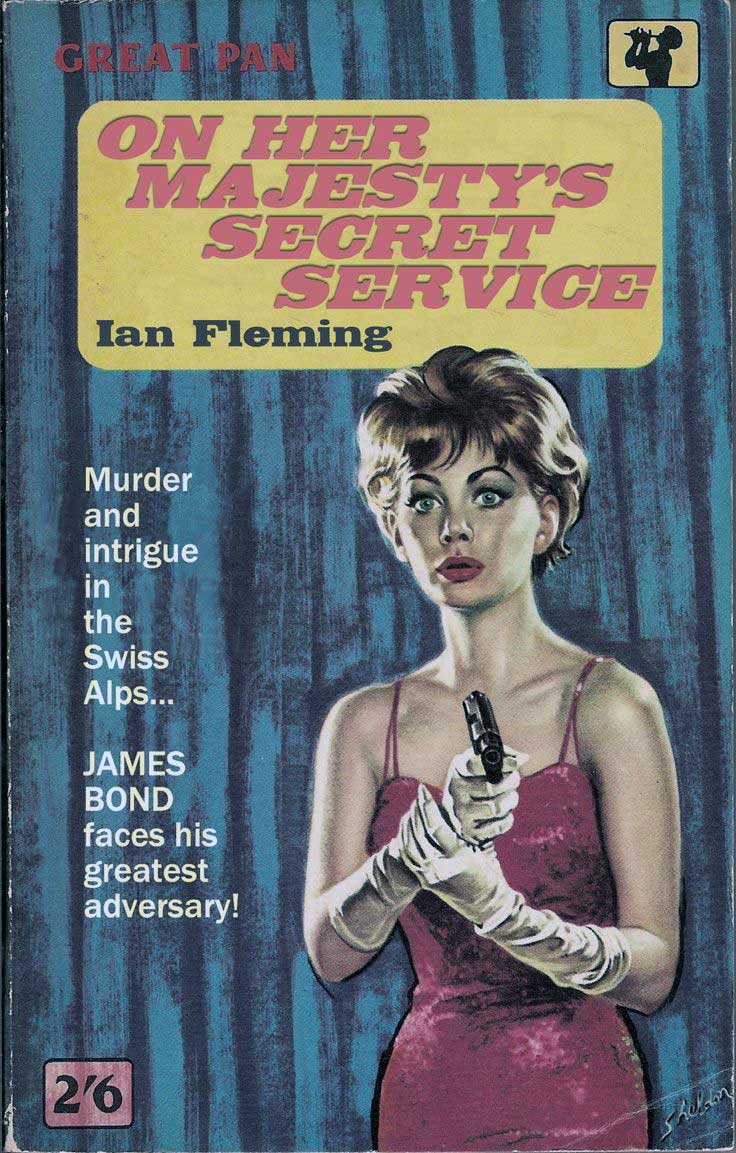Never say ‘no’ to adventures. Always say ‘yes,’ otherwise you’ll lead a very dull life. ~Colonel Pott (Chitty Chitty Bang Bang)
Ian Fleming (1908-1964), the man who created James Bond was, sadly, a late bloomer who died young.
He finished his first book, Casino Royale, at 44 and succumbed to a heart attack twelve years—and twelve books—later.
Fleming himself was a fascinating man. Did you know that:
1. Winston Churchill Wrote Fleming’s Father’s Obituary
During World War I, Fleming’s father Valentine joined the Queen’s Own Oxfordshire Hussars. A week before Ian turned nine, a German bomb killed Valentine in France. Winston Churchill, Valentine’s friend, and fellow officer wrote his obituary.
Fleming came from a privileged background but lived in the shadows of his heroic father and scholarly brother, Peter, who went to Oxford.
Fleming’s academic and professional record was abysmal. Prestigious Eton expelled him for an incident involving a girl. He went to Sandhurst Military Academy but failed the officer’s training test. He then failed the Foreign Office exam.
He finally found a job with Reuters news agency. He learned the basics of journalism but hated the low pay.
2. Fleming Worked As A Stock Broker
Like Jules Verne, Fleming finally became a stockbroker to make ends meet.
He made enough money to live like a playboy. He threw parties with beautiful women and high-stakes card games. He collected first editions and surrealist art. He might have become a complete wastrel if it weren’t for World War II.
3. Fleming Was A Spymaster
In 1939, while still a stockbroker, Fleming took an unusual freelance assignment for The Times to report on a Soviet Union trade mission. He probably went there as a secret agent for the Foreign Office, where he had friends and informants from his journalism days.
Fleming then became personal assistant to the Director of Naval Intelligence (DNI), Admiral John Godfrey. His imagination, intelligence, and charisma won him several important assignments during World War II.
In 1941 and 1942, Fleming visited Washington DC to help coordinate British/American intelligence operations. In fact, he wrote a memorandum detailing how to set up the CIA. He also spearheaded Operation Golden Eye, a plan to defend Gibraltar should the Germans attempt to invade through Spain.
Like every intelligence officer, however, Fleming had signed the Official Secrets Act. We can only guess at his accomplishments by reading between the lines in the Bond books.
But there’s no doubt Fleming excelled at his job. His boss, Admiral Godfrey, said: “Ian should have been DNI and I his naval adviser.”
4. Fleming Kept His Day Job After Hitting The Bestseller Lists
After World War II, Fleming worked for The Sunday Times as foreign manager. Then, at age 43, he began writing Casino Royale.
The official Ian Fleming site shared his rewrites of Casino Royale’s opening line:
First attempt: “Scent and smoke and sweat hit the taste buds with an acid thwack at three o’clock in the morning”
Second try: “Scent and smoke and sweat can suddenly combine together and hit the taste buds with an acid shock at three o’clock in the morning”
Finally (and satisfied): “The scent and smoke and sweat of a casino are nauseating at three in the morning”.
There you have it—good writing is, indeed, rewriting.
Fleming sent the book to a poet friend, who gave it to Jonathan Cape Publishers. They released it in 1953, and as the official site says, “a British cultural hero was born.”
He continued to write for The Sunday Times and persuaded his employers to grant him two months annual leave. In January and February of every year, he retreated to his second home in Jamaica (called Goldeneye) and penned the newest Bond installment.
Live and Let Die came out in 1954 and Moonraker in 1955. Thereafter, Fleming wrote one Bond adventure a year until his death in 1964.
5. Fleming Wrote A Famous Children’s Book
In 1962, the first Bond film Dr. No debuted, starring an unknown Scottish actor named Sean Connery.
Fleming suffered his first heart attack the same year. While recovering, he wrote an adventure story about a family and their magical car for his young son, Caspar. It was entitled Chitty Chitty Bang Bang, and made into a movie with Dick Van Dyke.
Two years later, at age 56, Fleming had a second heart attack and passed away.
I have always smoked and drunk and loved too much. In fact I have lived not too long but too much. One day the Iron Crab will get me. Then I shall have died of living too much.
Fleming’s Legacy
After Fleming’s death, his literary executors hired other authors to continue the James Bond novels, including Kingsley Amis, John Gardner, and Raymond Benson.
In 2012, Amazon bought the North American rights to Fleming’s books and produced the first electronic editions.
The Fleming estate has commissioned new writers to carry on the Bond legacy. Trigger Mortis by Anthony Horowitz (published in 2015) incorporates original material written by Fleming. In it, Bond takes on a mission involving the Space Race two weeks after the events of Goldfinger (with Pussy Galore by his side).
A few years before his death, Fleming wrote:
My contribution to the art of thriller-writing has been to attempt the total stimulation of the reader all the way through, even to his taste buds…
He succeeded, on his own unique terms. Twelve books in twelve years, starting at age 44. What a legacy!

